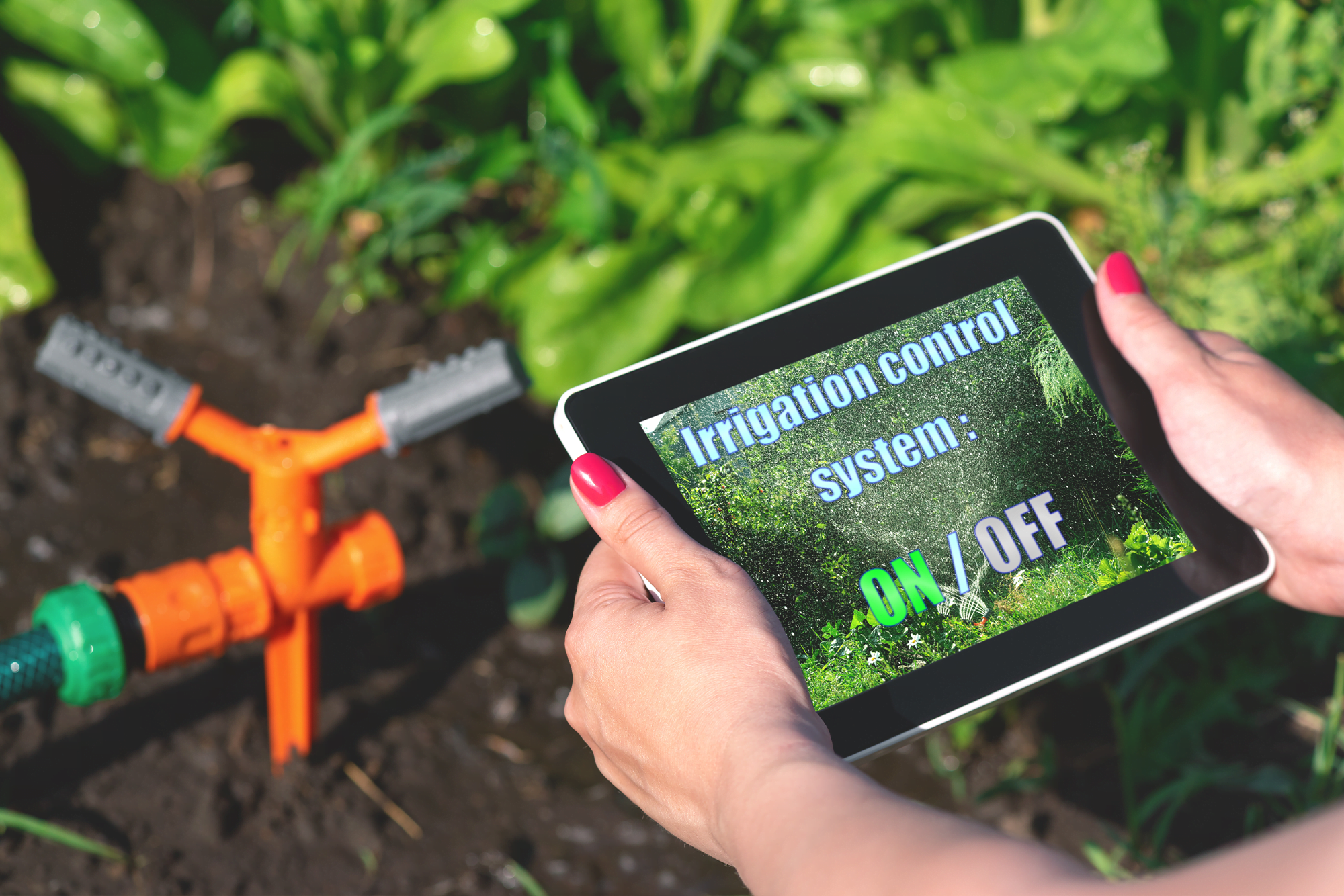Smart Irrigation Systems For Water-Efficient Farming
Welcome to our blog post about Smart Irrigation! In this article, we will explore the benefits and potential of smart irrigation systems. Smart irrigation technology has revolutionized the way we care for our landscapes, making watering more efficient and environmentally friendly.

Smart irrigation systems utilize sensors, weather data, and advanced algorithms to optimize irrigation schedules and save water. These systems can automatically adjust watering based on factors such as soil moisture, rainfall, and evapotranspiration, ensuring that your landscape receives the right amount of water at the right time.
What makes smart irrigation even more impressive is its ability to connect to the internet, allowing you to control and monitor your irrigation system remotely. With a smartphone or computer, you can easily adjust settings, receive alerts, and track water usage, providing you with greater control and convenience.
What is Smart Irrigation?
Smart irrigation refers to the use of advanced technology to automate and optimize irrigation practices. By leveraging data and connectivity, smart irrigation systems can deliver precise amounts of water to plants, reducing water waste and improving overall efficiency.
Unlike traditional irrigation systems, which often rely on timers or manual control, smart irrigation systems take into account real-time environmental factors. These systems monitor soil moisture levels, weather conditions, and plant water needs, ensuring that water is applied only when necessary.
Ideas For Smart Irrigation Implementation
Wondering how you can take advantage of smart irrigation in your landscape? Here are some ideas:
- Upgrade your existing irrigation system: Retrofitting your current system with smart technology can be a cost-effective way to enjoy the benefits of smart irrigation without a complete overhaul.
- Install soil moisture sensors: These sensors measure the moisture content in the soil and provide data to the smart irrigation controller, allowing for more accurate watering.
- Use weather-based controllers: These controllers take into account local weather conditions and adjust watering schedules accordingly, preventing overwatering during rainy periods.
- Consider evapotranspiration-based scheduling: Evapotranspiration refers to the loss of water from plants and the surrounding soil through evaporation and transpiration. By using sensors that measure evapotranspiration rates, smart irrigation systems can adapt watering schedules to match the needs of the plants.
- Explore moisture sensors for potted plants: If you have potted plants in your landscape, you can use smart moisture sensors specifically designed for containers. These sensors help prevent under or overwatering by providing real-time moisture data.
Recommendations For Smart Irrigation
When implementing smart irrigation in your landscape, it's essential to follow these recommendations:
- Regularly calibrate and maintain sensors: To ensure accurate readings, sensors should be calibrated and maintained according to the manufacturer's instructions.
- Monitor and adjust settings: Keep an eye on the system's performance and make adjustments as needed. Factors like changes in plant types, weather patterns, or the development of new landscaping areas may require tweaks to the irrigation settings.
- Educate yourself and your maintenance team: Understanding the basics of smart irrigation and how to operate the system is crucial for efficient water use. Make sure you and your team are knowledgeable about the features and functions of the smart irrigation system.
- Regularly inspect and repair the system: Conduct routine inspections of the irrigation system to identify any issues, such as leaks or clogged nozzles. Prompt repairs and maintenance will optimize the system's performance and prevent water waste.
Listicle of Smart Irrigation Benefits
- Water conservation: Smart irrigation systems use real-time data to ensure that water is used efficiently and only when necessary, ultimately reducing water waste.
- Cost savings: By preventing overwatering and eliminating unnecessary water usage, smart irrigation systems can save you money on your water bills.
- Environmental sustainability: With their ability to conserve water, smart irrigation systems contribute to environmental sustainability by minimizing the strain on water resources.
- Optimized plant health: By delivering the right amount of water at the right time, smart irrigation systems promote healthy plant growth and reduce the risks of disease and pests.
- Convenience and control: The remote access and monitoring capabilities of smart irrigation allow for easy control, scheduling adjustments, and notifications on your smartphone or computer.
Question & Answer: Common Smart Irrigation Queries
Here are some frequently asked questions about smart irrigation:
Q: Is smart irrigation suitable for all types of landscapes?
A: Yes, smart irrigation can be adapted to various landscape types and sizes. From residential gardens to commercial properties, smart irrigation is a versatile solution to achieve efficient and sustainable watering.
Q: Can I install a smart irrigation system by myself?
A: While some basic smart irrigation systems can be installed without professional assistance, it is recommended to consult with a knowledgeable technician or landscaper to ensure proper installation and optimal performance.
Q: Will a smart irrigation system reduce the time I spend on maintenance?
A: Smart irrigation systems can help automate watering schedules and optimize water usage, but some level of regular maintenance is still required. Periodic inspections and repairs ensure the system functions optimally and prevent any potential issues.
Summary of Smart Irrigation Benefits
In summary, smart irrigation revolutionizes traditional watering practices by leveraging advanced technology, connectivity, and real-time data. By implementing a smart irrigation system, you can enjoy water conservation, cost savings, environmental sustainability, and improved plant health. With remote control and monitoring capabilities, smart irrigation systems provide convenience and control at your fingertips.
Remember, smart irrigation is not only beneficial for your landscape but also for the environment. By using water more efficiently, we can contribute to the conservation of this precious resource. Consider implementing smart irrigation in your landscape to reap these benefits and take part in sustainable water management.
Post a Comment for "Smart Irrigation Systems For Water-Efficient Farming"